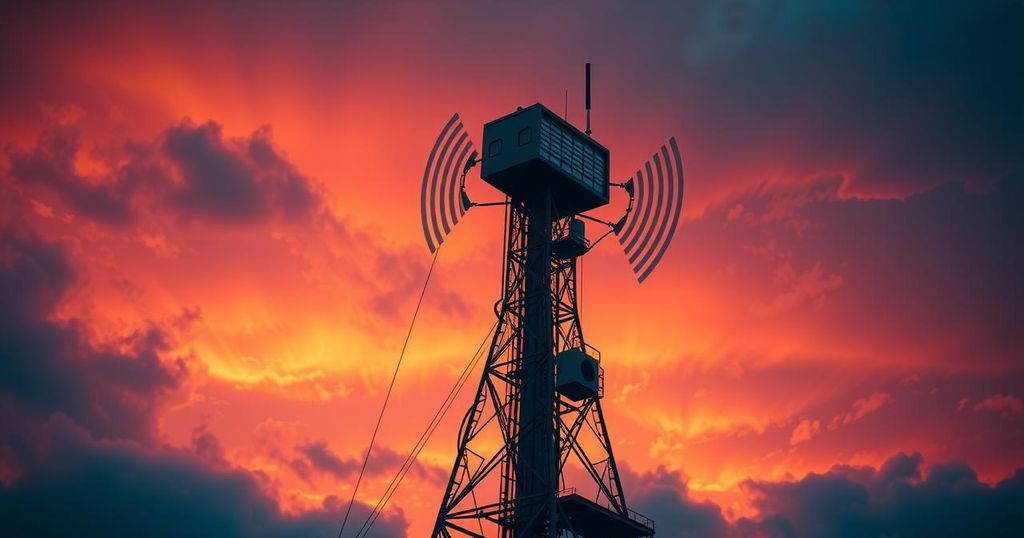Press Freedom Under Siege in Mali: The Courage of Mohamed Attaher Halidou

In Mali, the military junta has increasingly targeted journalists, particularly following the suspension of major French broadcasters in 2022. Local journalist Mohamed Attaher Halidou has been a vocal critic of media repression, emphasizing the press’s vital role in democracy. Despite facing warnings and threats, he remains committed to principled journalism, ultimately leading to Joliba TV’s suspension and questions about the future of press freedom in the region.
In the Sahel region, particularly in Mali, military juntas have increasingly targeted journalists, especially after the suspension of prominent French-run broadcasters in 2022, which was met with mixed reactions ranging from celebration to fear. Mohamed Attaher Halidou, a local journalist, expressed concern about this trend impacting democracy, stating that muzzling the press undermines its fundamental role. As media freedoms have been curtailed, Mali journalists often face harassment, imprisonment, and threats to their safety.
After the coup led by Col. Assimi Goïta in 2020, Mali’s media environment deteriorated, with the military pushing a nationalist agenda. In spite of the oppressive atmosphere, Attaher valiantly defended his station’s decision to air an interview with an exiled cabinet minister, emphasizing the importance of providing a platform for diverse perspectives. He maintained that journalists must pursue truth and hold those in power accountable.
However, following increased scrutiny from the junta, Joliba TV received a warning regarding its coverage of sensitive topics. Attaher and his colleagues stood firm against the government’s allegations of unbalanced reporting and reiterated their commitment to uphold journalistic integrity. Still, their situation worsened when a second warning escalated into a more threatening letter from the media authority.
Joliba TV’s turmoil attracted public support, demonstrating resistance against state censorship. Many Malian citizens rallied behind the station’s commitment to fair reporting, leading to a brief reinstatement after temporary suspension due to public pressure. This defiance illustrated the power of civic engagement, revealing that the government could bend to popular opinion despite ongoing repression.
In November, the station faced renewed government retaliation following discussions about neighboring Burkina Faso’s political developments. Attaher, undeterred, continued to host guests who critiqued government narratives, but this provoked further backlash. Ultimately, Joliba TV was suspended for six months, leaving its future uncertain as Attaher contemplates whether he should leave Mali to ensure his safety.
The plight of journalists in Mali underscores the troubling trajectory of democracy and press freedom in the Sahel, where military juntas suppress dissenting voices. Mohamed Attaher Halidou’s steadfast commitment to journalism reflects a broader resistance against tyranny. Despite facing intimidation and threats, the public’s support for independent media demonstrates an enduring demand for truth and accountability in governance. However, the future remains precarious as journalists wrestle with the risks of self-censorship and government reprisals.
Original Source: www.washingtonpost.com







